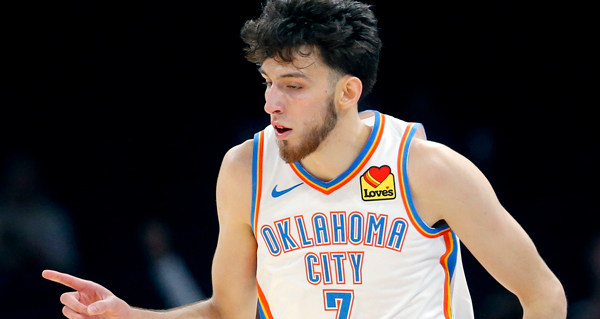The 2024-25 Oklahoma City Thunder are NBA champions. 68-14 in the regular season, they now have a one-year resume that will—if only through technicality—be mentioned forevermore in All-Time Great Team discussions. To those who watched all season, though, OKC is a curiosity: yes, a truly great team that was in many ways worthy of history. But somehow, at the same time, one with increasingly obvious flaws, perhaps symptomatic of their youth.
In more direct terms, the Thunder are about as underdeveloped a half-court offense as an All-Time Champion will ever be. That is why they were pushed to seven games in the NBA Finals, and also in the Western Conference semifinals. It is why they were down 29 points to the Memphis Grizzlies, in the first round, before Memphis lost their best player to season-ending injury. At the end of the day, the Thunder were survivors more than dominators, because the frenzy of their defense narrowly outpaced the weakness of their traditional scoring production.
In this way, I was often reminded of my experiences watching my local team, in a different sport: the Chicago Bears. Bears fans have never seen a quarterback throw for 4,000 yards, which is not even a particularly high threshold. So when our team is a contender, we expect scoring to come less from the offense and more from a superior defense, capable of creating takeaways that turn instantly into touchdowns. This is called a “pick-six” in the NFL. In the NBA, it’s “points off turnovers.”
In Game 7 of the Finals, OKC had 32 of those, which constituted nearly a third of all their scoring. Their victories were often like this, in the playoffs and before them. And despite all those turnovers-cum-layups, the Thunder shot only 40 percent from the field as a team, with only 28 percent of their three-pointers made as a group. Their MVP, Shai Gilgeous-Alexander, shot 8-for-27. OKC is not capable of even average half-court offense without SGA, though, so it’s not like they had another choice but to let him rip. And thankfully, on this night, he had his best point guard performance of the postseason, notching 12 assists as he punished the Indiana Pacers for guarding him as a crowd; a task he struggled with in the series, thrice collecting more turnovers than assists.
It was only the third time in the postseason that Gilgeous-Alexander hit double-digits as an assister, and only the fourth time anyone on the Thunder reached that milestone (Jalen Williams got 10 dimes, once, against the Denver Nuggets). They are champions, but there is still much room to grow. And it is a growth that has to occur, most likely, if OKC is able to turn a spectacular season into something more dynastic. As the team ages, they won’t enjoy the same kind of energy and physicality edge over their opponents, and will have to be a more sophisticated half-court machine, relying less on burning up all 4,700 square feet of the court with pure passionate effort.
Many have already assumed OKC’s title to be the first chapter of a longer, more glorious story. It won’t be that way if they don’t remain lucky in the injury department, and if they don’t evolve offensively. There will be hard decisions, too—as a young team, their roster is composed of many extreme-value contracts, but their core players will be up for huge extensions soon enough, and it will be impossible to pay everyone what they’re worth. The Thunder still have a wealth of future draft picks to keep renewing their team with, yet that’s no guaranteed route to prolonged title contention. So as well as they’ve managed their team up to this moment, they do not have what does not exist: a true shield from the crunch of modern salary cap limitations, designed to promote parity and prevent perennial giants.
It is time, right now, then, for the Thunder to get better at popping champagne bottles. To become expert at releasing those bubbles this week specifically. Dynasties are dead, and this period of time might be their last proud span of parades and parties—the fullest triumph they ever know, to be appreciated right now just as much as if it had happened when they were all closer to 40 years old, having fought for it well over a decade. This is not to say that they can’t, or won’t, win another title—it’s certainly possible. Just that the future is stupid, no matter how well you’re set up for it, while the present bears uncommon gifts.
The way back to those rewards will not be a matter of rinse-and-repeat ease. It will be an odyssey strange and tough enough to make these young men understand the gravity of their current accomplishment more than they seem to, right now. Life rarely allows us to have the experiences we most desire when we’re most prepared to have them, though. Physically, financially, and otherwise, the Thunder could never be in this position again. The best part of their history may have already happened. If modern trends hold, that will be the case, so know that the spoils are already here, and that there will be no better time to enjoy them.






